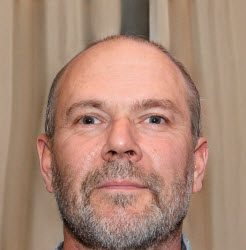Benign prostatic hyperplasia (BPH) is nonmalignant enlargement of the prostate gland, a common occurrence in older men. It’s also known as benign prostatic hyperplasia and abbreviated as BPH. BPH is not cancer. An enlarged prostate can be a nuisance, but usually not a serious problem. BPH is probably a normal part of the aging process in men, caused by changes in hormone balance and in cell growth.

[Related Topics: Dysfunction Doctor Manhattan, Urology Doctor Manhattan]
It causes urinary problems. Like dribbling, often feeling like you need to urinate, a weak urine stream and a sense that your bladder is not completely empty after you urinate.
In BPH. the prostate gland grows in size. It may compress the urethra which courses through the urethra to the urethra to the outside. It can cause urine to back up in the bladder leading to the need to urinate frequently during the day and night. Other common symptoms include a slow flow of urine, the need to urinate urgently and difficulty starting the urinary stream. More serious problems include urinary tract infections and complete blockage of the urethra, which may be a medical emergency and can lead injury to the kidneys.
The treatment for BPH depends on how tolerable the symptoms are, you might decide to postpone treatment and simply monitor your symptoms. For some men, symptoms can ease without treatment.
Medication is the most common treatment for mild to moderate symptoms of prostate enlargement, some of the options are:
- Alpha blockers
They relax the smooth muscles of the prostate, and the bladder neck, which helps to relieve urinary obstruction caused by an enlarged prostate in BPH.
- 5 alpha reductase inhibitors
These medications shrink your prostate by preventing hormonal changes that cause prostate growth. These medications might take up six months to be effective. Side effects include retrograde ejaculation.
- Combination drug therapy
Your doctor might recommend taking an alpha blocker and a 5-alpha reductase inhibitor at the same time if either medication alone isn’t effective.
- Tadalafil (Cialis)
Studies suggest this medication, which is often used to treat erectile dysfunction, can also treat prostate enlargement. However this medication is not routinely used for BPH and is generally prescribed only to men who also experience erectile dysfunction.
Surgery methods are also available. The first choices according to the National Institute of Health is transurethral resection of the prostate. The surgeon removes prostate tissue obstructing the urethra using resectoscope inserted through the penis during transurethral resection of the prostate.
Not all men need surgery or medication for this condition. There are a few steps that help manage mild symptoms
- Do pelvic-strengthening exercises.
- Stay active.
- Decrease alcohol and caffeine intake.
- Space out how much you drink rather than drinking all at once.
- Urinate when the urge strikes, don’t wait.
- Avoid decongestants and antihistamines.
Either way if you suspect or suffer from BPH you should visit your urology Doctor Manhattan for a quick check up, he give you more information accordingly to your situation.


